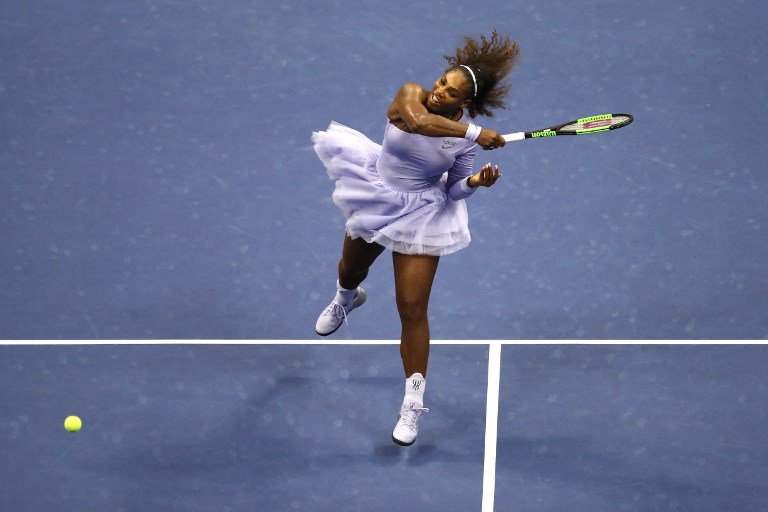The greatest? Serena can end Court argument at Australian Open
Updated | By AFP
Serena Williams hopes to match Margaret Court's record of 24 singles majors at next week's Australian Open but many already regard her as the greatest women's player of all time -- though Court herself is not necessarily among them.

Over the years, Court has expressed admiration for Serena's achievements but the Australian also bristles when her own record is dismissed as largely irrelevant in the world of modern tennis.
The 76-year-old won 13 of her 24 Grand Slams before 1968, when the women's game entered the Open era and became fully professional.
Court won 24 singles Grand Slams from 1960-73 -- 11 Australian Opens, five French Opens, three Wimbledons and five US Opens.
Serena's tally stands at 23 since 1998 -- seven Australian Opens, three French Opens, seven Wimbledons and six US Opens.
Chris Evert, who won 18 singles Slams, believes the standard of today's game is so far above previous eras that comparisons are meaningless.
"Of course Serena is the best ever," she told CBS last year. "A case can be made (for others), but it's really ridiculous. We were the best in our era. Serena is the best in her era."
For former Wimbledon champion Richard Krajicek, Court isn't even in the conversation when it comes to the greatest of all time.
He regards Steffi Graf, with 22 Open-era singles majors, as Serena's only serious rival, pointing out that in 1988 the German won all four Slams and Olympic gold in a calendar year.
"Not to take anything away from Margaret Court, but Steffi Graf was the big record she beat... In amounts Serena is better, but in that one special year Graf has something maybe more special, but both are great champions," he said.
"Margaret Court is nice but for me... it's Steffi. I don't know who's one or two, but those two are the two big legends for me."
- 'She'll deserve it' -
Court won all four Grand Slams in a calendar year in 1970 but it was still not enough for Krajicek to rank her alongside the greats of the modern era.
The Dutchman pointed out that 11 of Court's titles were earned in Australia at a time when the journey Down Under involved an arduous boat trip that many top players declined to make.
Other detractors point out that some of the Slams Court won involved only 32 competitors, rather than the 128-player draws Serena has faced throughout her career.
Court vigorously defends her record, disputing the argument that the best players never came to Australia and pointing out her career extended well into the Open era.
"It's a little bit sad that amateur tennis of those years is a little bit underestimated," she said. "They can't forget that I won 11 Slam titles in the Open era.
"I see that there are many awards for Rod Laver and Ken Rosewall, while for the women's tennis they want to speak only about the players who played in the Open era."
She also contends that Serena's serve would not have been as powerful using the wooden rackets of her era, saying the American can look "a little wobbly" without her major weapon.
"It's not easy to win Grand Slams, it's probably easier today than when we were playing," she told the BBC.
"We had wooden rackets, we had to travel 10 months of the year, we played every week, we couldn't take family with us, we couldn't take any masseurs, we didn't know any of that, we played with injuries."
Court's haul of 24 titles has been in Serena's sights since the American's last victory at Melbourne Park in 2017 -- when she was eight weeks pregnant -- and it appears inevitable the 37-year-old will reach the milestone at some point.
Court says she doesn't worry about the prospect and can always take comfort from the fact that she has 40 Grand Slam doubles titles to go with her singles crowns.
"I think that no player will be able to beat my record of 64 Grand Slam titles in total," she said.
"But if someone will win more than 24 in singles, well, she'll deserve it."
Show's Stories
-
WATCH: Cape Town restaurant earns elite pizza certification
We don't want to be too cheesy, but this is a big deal!
The Drive with Rob & Roz 12 hours ago -
WATCH: SA reacts to Audi driver crashing in neighbourhood
"Audi drivers starting to act like Polo drivers."
The Drive with Rob & Roz 12 hours ago